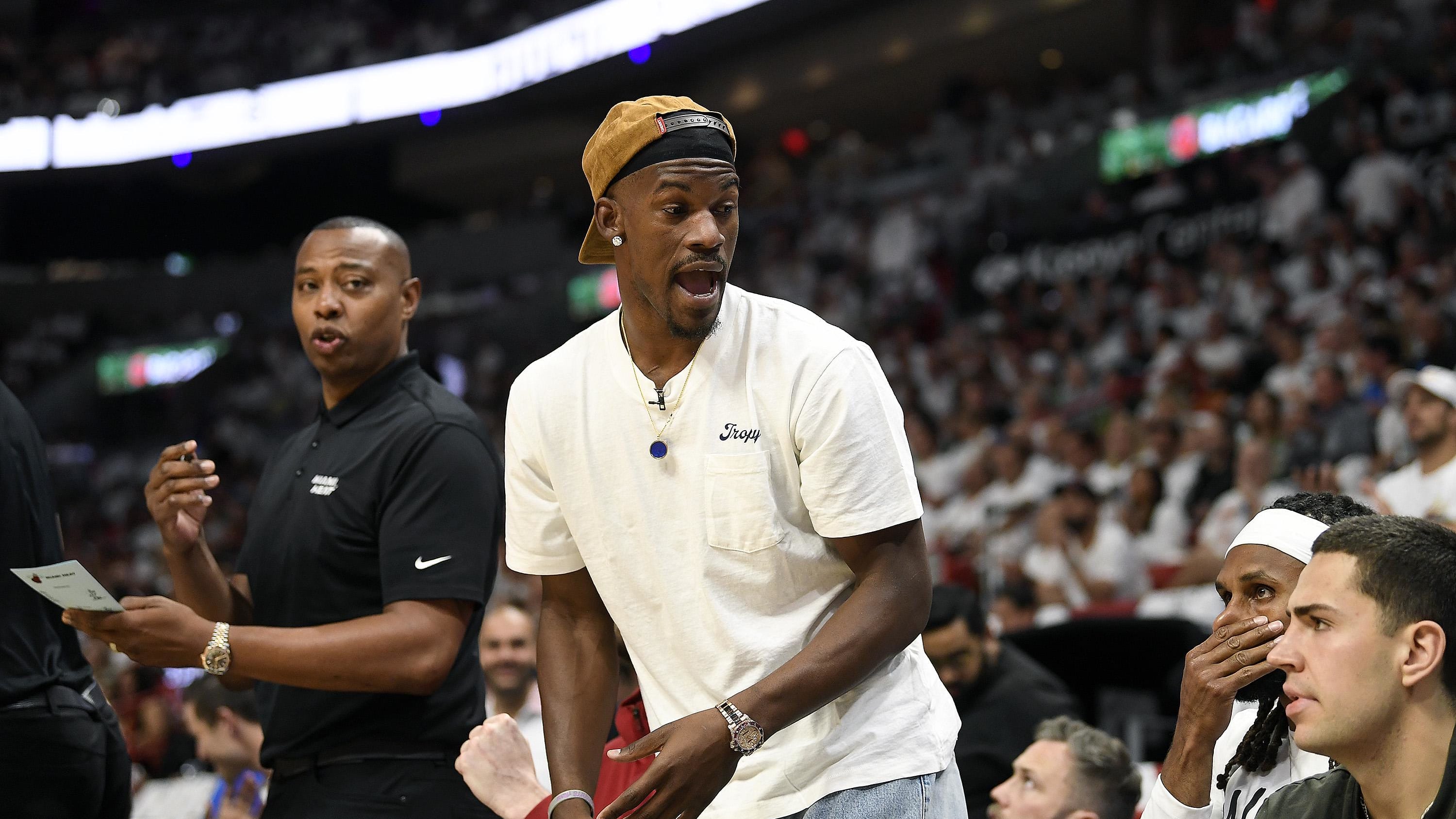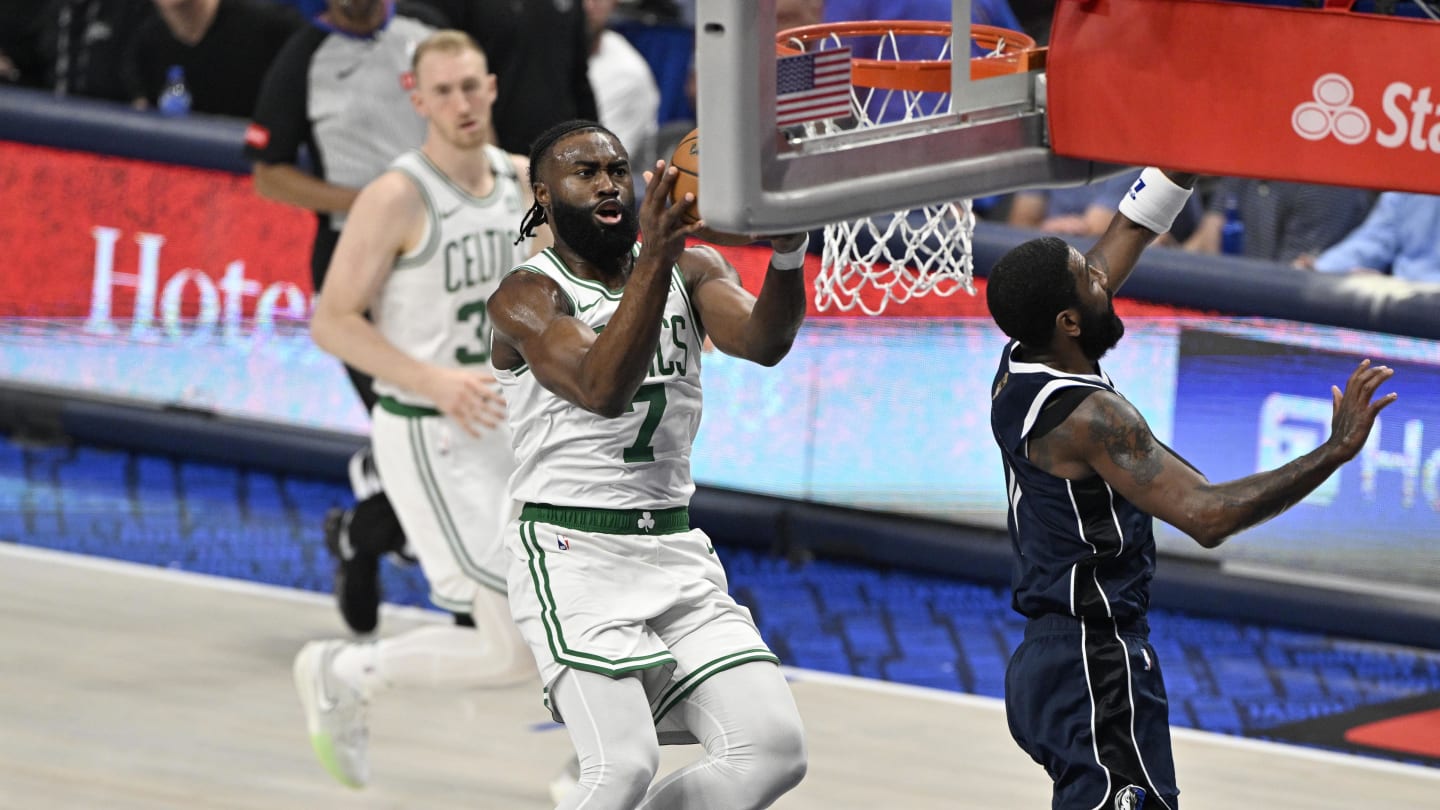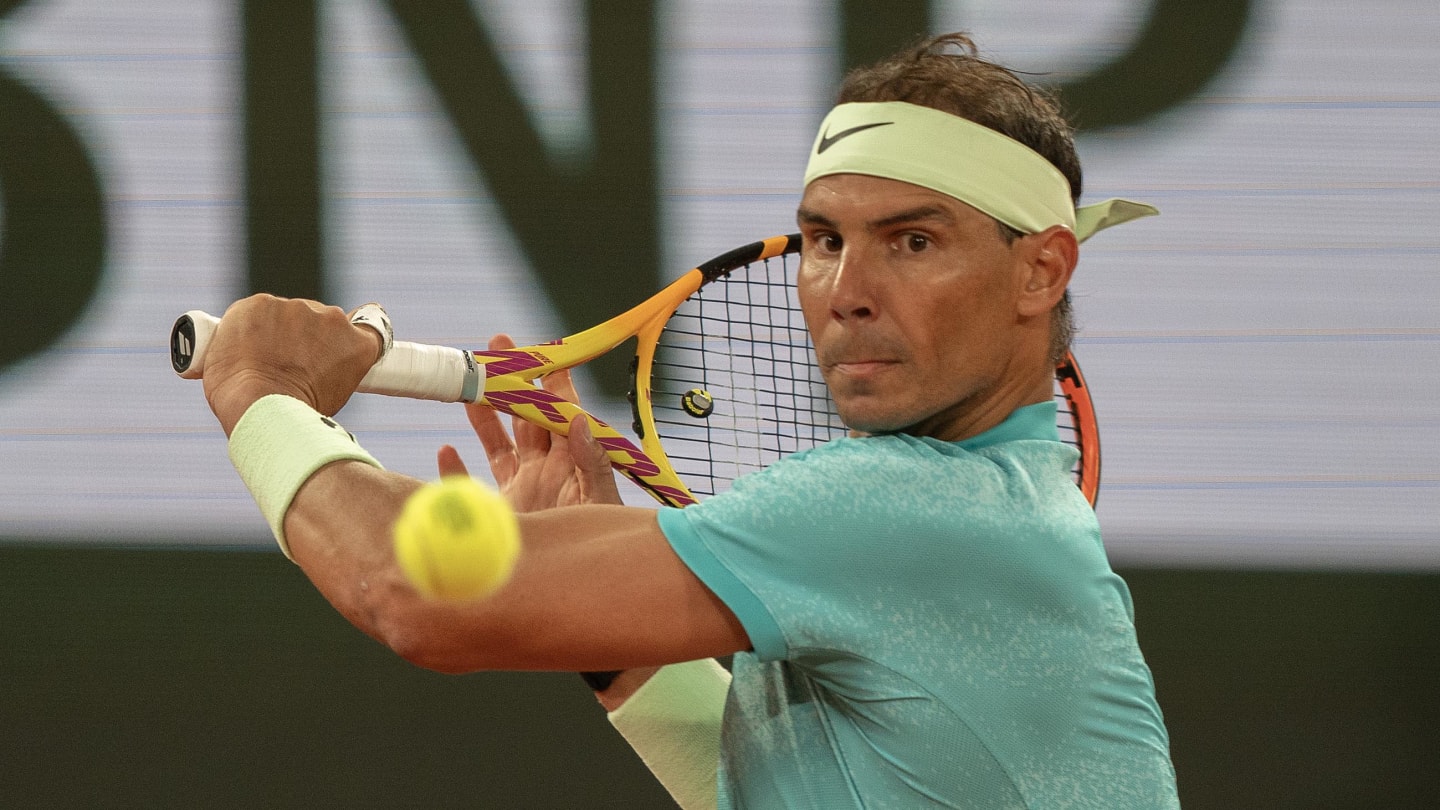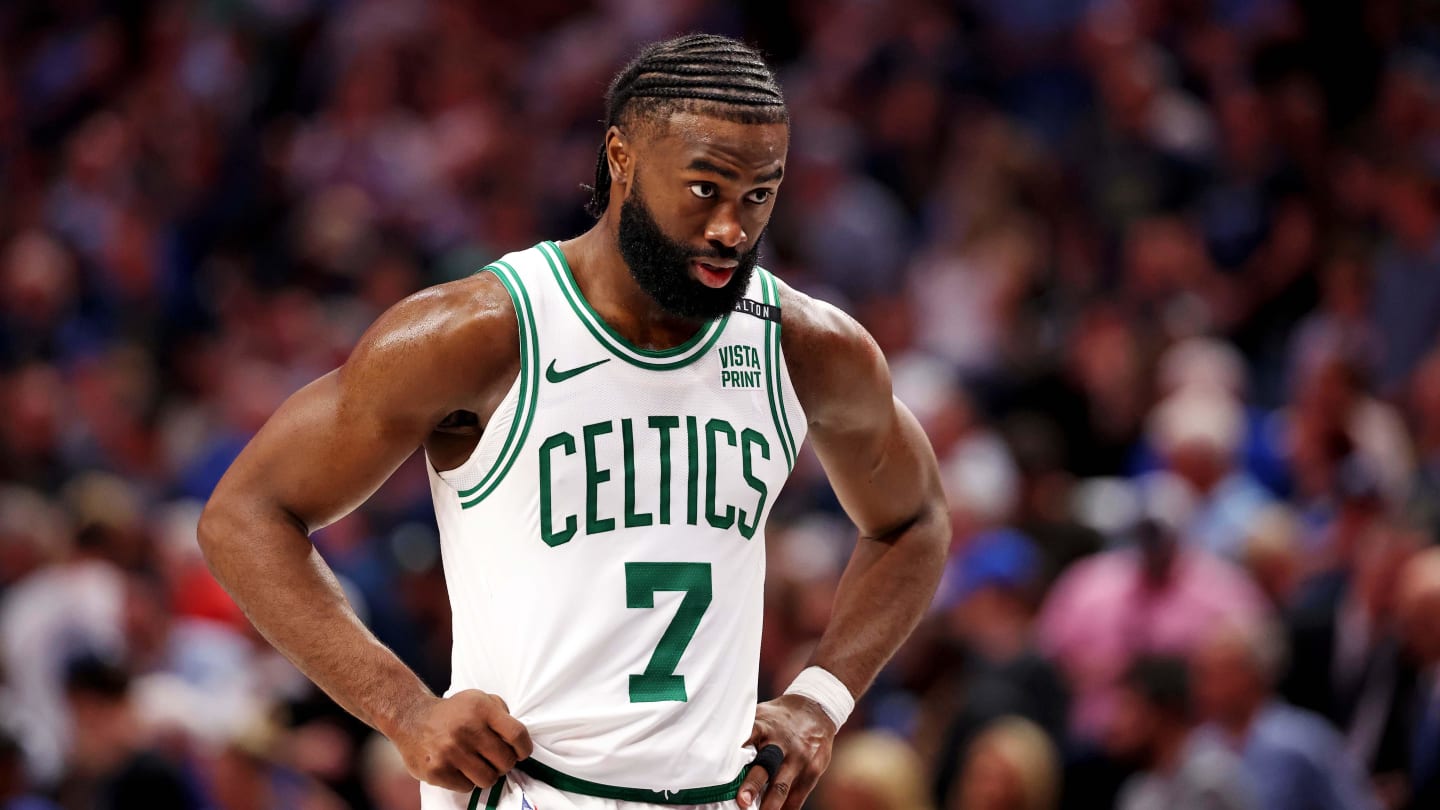Veteran minicamps are getting fired up, and training camps are not too far away …
• So what was the holdup before the Minnesota Vikings and Justin Jefferson agreed to the four-year, $140 million deal that was announced Monday?
Mostly structure. The nature of receiver deals signed in 2022 created fuzzy math for everyone. The Miami Dolphins’ Tyreek Hill signed a deal trumpeted as being worth $30 million per year in new money—but had $45 million in cash tucked into the contract’s final year, which pumped up the APY. Similarly, the Las Vegas Raiders’ Davante Adams contract was advertised at $28 million per year, but that was thanks to cash figures exceeding $36 million (a wild number then, not as much now) for the final two years of the deal, ’25 and ’26.
Jefferson’s camp wasn’t going for any of those tricks. The deal signed by San Francisco 49ers edge rusher Nick Bosa in September—at $34 million per, making Bosa the NFL’s highest-paid nonquarterback—was the benchmark for Jefferson, and he wasn’t going to take a deal that wasn’t structured to reflect that in real money. And, indeed, the final year of Jefferson’s new deal has $34 million in cash, which is less than the new-money APY of $35 million.
The other thing Jefferson sought, and got, was a boatload of guaranteed money. His injury guarantee of $110 million blows away the previous high for receivers by A.J. Brown at $84 million (a markup of more than 30%) a month ago. And while $88.743 million is the full guarantee, the final $14.257 million of the injury guarantee that isn’t fully guaranteed at signing will become fully guaranteed in March 2026. Since that’s part of his base salary for ’27, the fourth year of the deal, it’s a very good bet he’ll get it.
That gives Jefferson functional guarantees into the fourth year of the deal, when he turns 28, which is another highlight of the contract, with just under $126 million built into the first four years (it puts the average at $31.5 million in total money, and new money average over that time at $35.3 million).
This is a home run for Jefferson, and a good deal for the Vikings, because they’re getting a star who’s as sure a thing as there is in the sport for the next five years.
And in the interest of bringing a full view of the negotiations, my understanding is they just weren’t quite there last year, with Jefferson wanting in the $30 millions in APY, and the Vikings a couple million short of that; and Minnesota’s QB situation really didn’t change much in the context of the talks. I’m told Jefferson’s belief in Kevin O’Connell mitigated any doubts that might have risen when Kirk Cousins left for the Atlanta Falcons. The two have a great bond, and Jefferson trusted O’Connell’s judgment and ability to coach that particular position implicitly.
• My first memory of Dallas Cowboys legend Larry Allen was from his rookie year in 1994. I remember him coming in at left tackle, when Mark Tuinei got hurt, and soon thereafter, John Madden saying on a broadcast how Allen had a chance to be a really, really good pro, and another in the long line of stars the Cowboys developed around that time. He became a starting guard the following year, his first of seven consecutive All-Pro seasons in Dallas.
Allen died Sunday at age 52 while vacationing in Mexico with his family, according to the Cowboys.
During his time in Dallas, he drew starts, and extended time, at every spot on the offensive line besides center, made two all-decade teams and left almost a Bigfoot-type of legacy—where the stories of his greatness only grew with time. There was the 700-pound bench press. “Once I benched 700 pounds,” he once said, “they [drug] tested me twice a week for the rest of my career.” Then, there was the time legendary line coach Hudson Houck got on him for not chasing down a defender after a pick in practice. The following Monday night, he made up for it with this …
Such sad news about Larry Allen. Him tracking down this Saints linebacker is still one of my favorite all-time NFL moments. What a special player.
“This man has got a rocket booster strapped to his back!” pic.twitter.com/V0cllBQEvx
— Alex Kozora (@Alex_Kozora) June 3, 2024
And on top of all that, the reserved Allen was beloved by his teammates, coaches and the staffers in the Dallas building, all the way down to the guys in the back who took care of all of the little things for the players.
Our thoughts and prayers are with the Allen family. Here’s hoping they can find some peace in all he accomplished, and more so who he was.
• The Carolina Panthers’ ask for $650 million in public money to renovate Bank of America Stadium comes not long after the mess in Rock Hill, S.C., where construction on a practice facility fueled largely by public funding was halted, and later abandoned, over a financial dispute. The memory of that, of course, is still fresh, and I’d imagine Carolinians are aware, too, that David Tepper is the NFL’s second-wealthiest owner, so he isn’t lacking capital.
That said, the stadium is owned by the city, which changes the dynamic a bit, and its uptown location, a walk from the most vibrant and bustling parts of Charlotte, is among the NFL’s best.
It’ll be interesting to see where this one goes next.
• Seeing Mike Vrabel at Cleveland Browns practice last week reminded me of what a big pick-up that should be for Kevin Stefanski and his staff.
Yes, Vrabel’s defensive acumen will help Jim Schwartz. But beyond that, some of Vrabel’s best qualities as a head coach were how he was able to teach and weaponize the rules for his players, and how innovative he was in manipulating situation football. For a play-calling head coach such as Stefanski, getting a guy like Vrabel on staff is gold.
Also, good on Stefanski—who’ll be getting an extension soon, I think—for having the confidence to hire someone such as Vrabel, who’s a very popular native of Northeast Ohio, and is widely seen as a pretty sure bet to become a head coach again very soon.
• The New England Patriots have done what they can through OTAs to maximize for all players, running what’s called “two spot” sessions (with simultaneous practices happening on adjacent fields) to make the most of the time they’re allowed to be out there. They’ve also mixed and matched players with different sets of teammates.
One example is how they’ve worked to keep the starting safeties together, so they can build as primary communicators on defense, but worked them with a wide variety of different corners. Accordingly, the quarterbacks have rotated through. Jacoby Brissett has gotten most of the reps with the ones—having played for offensive coordinator Alex Van Pelt in Cleveland gives him the ability to teach the offense to teammates—and Drake Maye and Bailey Zappe have rotated in with that group a little.
My sense is Maye will be taking more reps with the second group as spring becomes summer, and then have his shot to show he’s worthy of playing time in the fall. Could he start? I don’t think that’s the plan. But his incremental progress thus far has been impressive (he takes steps forward, without many back). And when he ties his feet to his throwing motion to the play call, everyone sees the top-five pick talent.
• The Jefferson deal is a double-whammy for the Dallas Cowboys, who are now headed for the summer break with unresolved contract situations with three of their biggest stars.
It obviously raises the price on CeeDee Lamb, who’s coming off a 135-catch, 1,749-yard, 12-touchdown season, just turned 25 and is headed into a contract year (and is holding out from minicamp). It does the same with Micah Parsons, who is now eligible for a big second contract and wouldn’t be out of line to see if he can get $40 million per year from Dallas.
Throw in that the quarterback is in a contract year, too, and that’s a lot of business that the Cowboys need to get done.
• While we’re here, this year’s fine schedule for missing mandatory minicamp: Teams can dock players $16,953 for missing the first day, $33,908 for missing the second day and $50,855 for missing the third day of minicamp. So for a player, sitting out is (potentially) a six-figure statement.
• I love Lamar Jackson as a player and a person. But the Baltimore Ravens not having him at OTAs is tough. Yes, it’s voluntary. But the quarterback’s presence (or lack thereof) has an impact on everyone on the offense, and their ability to build something together. So not having Jackson there for the start of practices toward the 2024 season isn’t ideal.
• The Falcons, true to their word, have kept Kirk Cousins with the ones and Michael Penix Jr. with the twos through the spring. One advantage they have is that Penix, who played six years in college, doesn’t need a redshirt year the way some other quarterbacks do, so there’s no concern making him the one-snap-away backup.
• I’ll be interested to see how Aaron Rodgers responds to C.J. Stroud’s comments. I’m sure all of you will be, too.




